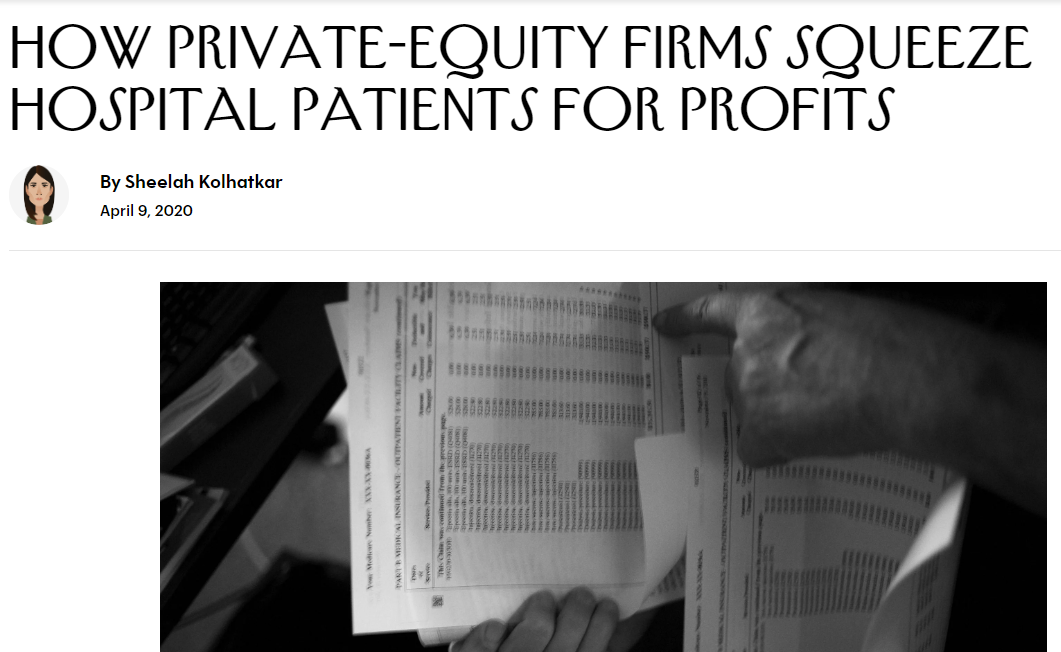Corruption, lobbying, corporate malfeasance, and frauds: a weekly unconventional selection of must-read articles by investigative journalist Bethany McLean.
From the wonderful Barry Ritholtz. Can we do better? Well, we must.
I’ve long been a skeptic of fracking, but the human cost of the meltdown is high and it couldn’t come at a worse time.
I somehow missed this excellent piece, but I have been wondering about the role private equity has played in our healthcare system.
Bonus! Expect the unexpected! Aka welcome, Elon Musk:
ProMarket is dedicated to discussing how competition tends to be subverted by special interests. The posts represent the opinions of their writers, not necessarily those of the University of Chicago, the Booth School of Business, or its faculty. For more information, please visit ProMarket Blog Policy.










